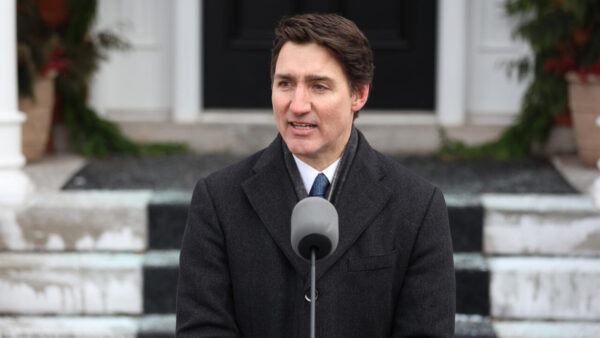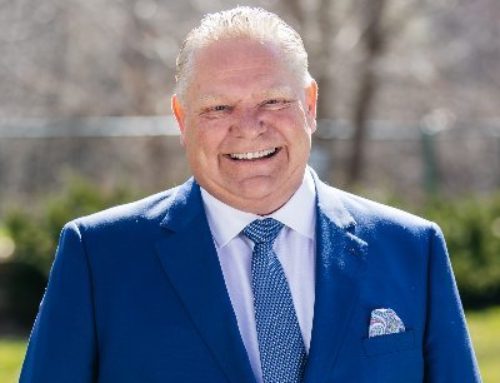Trudeau resignation sets up race to become next Liberal leader, Prime Minister
Paul Tuns:

Prime Minister Justin Trudeau announced he would not leader the Liberal Party in the next election after pressure from his caucus to step aside. Pro-life leaders called Trudeau the most pro-abortion prime minister ever and thanked God that his government is coming to an end soon.
In some ways, Prime Minister Justin Trudeau was a dead-man walking beginning June 24, 2024 after his party lost a supposedly Liberal safe downtown Toronto seat (Toronto-St. Paul’s). The Liberals would go on to lose two other seats in by-elections in Montreal (LaSalle-Emard-Verdun) and the Vancouver suburbs (Cloverdale-Langley City). The Conservatives won in Toronto and B.C., the Bloc Quebecois in Montreal. The writing was on the wall for everyone to see except, apparently, the Prime Minister and his closest advisors and allies. In June, long-time Prince Edward Island MP Wayne Long called on Trudeau to step aside.
Four months later, on Oct. 23, a letter signed by 24 Liberal MPs called on Trudeau to resign by Oct. 28. That deadline passed without incident. Since June, the Conservatives have had a consistent 20 percentage point lead over the Liberals in national polling. Trudeau’s caucus was growing listless.
On Dec. 16, Chrystia Freeland was scheduled to deliver the Fall Economic Statement as Trudeau’s finance minister. There were reports in the week before that Freeland and Trudeau were at odds over some new spending measures but she went out and plumped for them anyway. Hours beforehand and just before the by-election polls opened in Cloverdale-Langley, she resigned, primarily because she was going to be ushered out of the job anyway and she did not support the Prime Ministers’ “costly political gimmicks” – a reference to an HST holiday on some items and a $250 payment to “working” Canadians – and they disagreed “about the best path forward for Canada.” It was a stunning broadside across the bow of the Good Ship Trudeau.
Four days later, more than 20 Liberal MPs publicly call for Trudeau to resign and more than 50 Liberal MPs sign a private letter asking him to resign.
The Trudeau government’s hold on power seemed tenuous but was saved by the Christmas holiday break with Parliament not scheduled to sit. Trudeau would go home to celebrate the holidays and his birthday as prime minister but would have to endure the humiliation of reports of Liberal provincial caucuses – Ontario, followed by the Atlantic Canada Liberal caucus, and Quebec caucus – calling for him to step aside.
There were calls for him to take a “walk in the snow” like his father had in 1980 and again in 1984 when Pierre Trudeau decided to resign the Liberal leadership (reneging on it after Joe Clark’s government fell in 1980). One editorial cartoon showed Justin Trudeau taking his own walk in the snow — actually being dragged by the Liberal caucus.
On Jan. 6, two days before a scheduled six-hour caucus meeting of Liberal MPs in Ottawa, Trudeau announced he would step aside once a new Liberal leader was chosen and that he had asked the Governor General to prorogue Parliament until March 24. All business before the House and Senate would die, the government could not be defeated on a confidence vote, and the Liberal Party had just over two months to find a new leader and next prime minister.
The leaders of the opposition – Conservative leader Pierre Poilievre, Bloc Quebecois leader Yves-Francois Blanchet, and NDP leader Jagmeet Singh – all said they would vote down the government once it returned, with the Conservatives saying that prorogation was unnecessary and that Canada should have an immediate election.
Conservative MP Leslyn Lewis echoed the party’s talking point about the situation, tweeting, “A new Liberal leader won’t fix anything. They will endorse the same reckless Trudeau policies that have left Canadians poorer and less safe than they were 10 years ago. Canadians don’t need more of the same failed policies. They need an election.”
Rod Taylor, leader of the Christian Heritage Party, told The Interim, “like most social conservatives, I’m glad that Justin Trudeau is stepping down” and that it “couldn’t come a moment too soon.”
Taylor said Justin Trudeau is “the worst Prime Minister in Canada’s history” because “he’s doubled the debt, legalized harmful and addictive drugs, misused the Emergencies Act to brutally punish his political opponents, legalized doctor-assisted suicide, bribed the media to influence news reporting, promoted sexual perversion, stacked the Senate, bankrupted the country, brought in millions of migrants, many unvetted, created painful inflation … and on and on.” Taylor said, “His legacy is a disaster of tyranny, mismanagement, censorship and scandal.”
The CHP leader said he was not upset about the prorogation of Parliament because there is a “silver lining” that “a couple of terrible bills (C-63, the Online Harms Bill and C-293, the Pandemic Preparedness Bill) are likely to die on the order paper. “
On Jan. 8, the Liberal caucus met and the National Post reported that MPs expressed a preference for a quick leadership race and for party rules to be tightened to prevent foreign interference.
On Jan. 9, Liberal Party president Sachit Mehra announced basic details for the leadership vote: Candidates must pay a $350,000 entry fee (the highest in Canadian history) and announce their candidacy by Jan. 23, with a written nomination signed by 300 registered Liberal members, including at least 100 from three different provinces or territories. Canadian citizens and permanent residents aged 14 or older must become party members by Jan. 27 to be eligible to vote. Voting ends and results will be announced on March 9.
The ballot will be a preferential one in which candidates would be ranked and each round the candidate with the fewest points will be dropped from the next round of counting with the eliminated ballots’ second preference being counted, with the process repeating until one candidate wins a majority of the points. Each riding (electoral district) is allocated 100 points with points distributed to each candidate in proportion to the votes he or she gets in each individual riding.
The Liberal Party of Canada’s national board scrambled to come up with a timeline that worked – and in doing so, violated the party’s constitution which requires that nominations be submitted “at least 90 days before the day of the Leadership Vote.”
Campaign Life Coalition welcomed the news of Trudeau’s departure. “We thank God for the news this morning that Justin Trudeau, Canada’s most pro-abortion Prime Minister, is stepping down as Liberal leader,” CLC said in a statement. CLC national president Jeff Gunnarson said, “Trudeau has done more than any other Prime Minister in our country’s history to move our country away from its Christian foundation toward an anti-life and anti-family dystopia that undermined the rights of Canadians.”
The litany of anti-life and anti-family policies includes, but is not limited to implementing Canada’s euthanasia regime and expanding it several times since legalizing Medical Assistance in Dying in 2016, spending billions of dollars to fund and promote abortion abroad, banning student subsidies from going to groups and businesses that oppose abortion, promoting abortion relentlessly on social media and demeaning opponents of abortion-on-demand, introducing free contraception in the first phase of a national pharmacare plan, and attacking pregnancy centres with threats of stripping them of their charitable tax status.
CLC said in its statement that Trudeau’s anti-life policies have contributed to Canada’s plummeting fertility rate hitting an all-time low of 1.26 children per woman of child-bearing age.
Jack Fonseca, CLC’s director of political operations, said the next Liberal leader should reverse Trudeau’s “all-out war against preborn babies and the pro-life advocates who defend them.” Fonseca said, “The new Liberal leader’s first announcement should be the immediate cessation of all Trudeau-era hostilities towards pro-life charities, including withdrawal of the proposal to strip pro-life pregnancy centres of their charitable status.” Fonseca also called for the end of the discriminatory Canada Summer Jobs policy that denies grants to pro-life and pro-family employers. He also called for the next Liberal leader to rescind Trudeau’s policy of barring pro-life citizens from running as candidates under the Grit banner.
Josie Luetke, CLC’s director of education and advocacy, said the next leader must discard Trudeau’s “fake feminism” and “dictatorial governance.” She said, “A new leader has to do things differently and truly champion human dignity and equality, as per the founding principles of the party.”
When The Interim went to press in early January, the only announced candidates running for the leadership were Nepean MP Chandra Arya and former Pierrefonds-Dollard MP Frank Baylis. Both supported the Trudeau government’s legalization of euthanasia, legalization of cannabis, and promotion of abortion. Both are red-lit by CLC as unsupportable because of their anti-life and anti-family record and views.
Freeland, former British Columbia premier Christy Clark, and former Bank of Canada governor Mark Carney are rumoured to be interested in running for Liberal leader. Freeland led the Trudeau government’s attack on pregnancy care centres and is red-lit by CLC.
Three high profile Liberals have opted not to run: Foreign Affairs Minister Melanie Joly, Finance Minister Dominic LeBlanc, and Immigration Minister Marc Miller.
Sachi Kurl, president of the polling firm Angus Reid, told the CBC that the Liberals are not choosing a leader to help them win the next election but “to maintain dignity” – whether that is as the Official Opposition or perhaps even third or fourth place party. The most recent polling suggested the Liberals could have been left with virtually no MPs, much like the Progressive Conservatives winning just two seats in 1993 after nine years in power.
CLC’s Gunnarson told The Interim it appears that there will be no candidate that pro-life, pro-family Canadians will be able to support in the leadership. “Unfortunately,” he said, “it appears the party is committed to continuing along the anti-life trajectory set out by the failed leadership of Justin Trudeau.”
The Conservative Party is ready for an immediate election and the CHP also looks forward to a likely Spring election. “We believe the Conservative Party will likely win in a landslide,” said Taylor, “and we would love to have some CHP MPs working together with a Conservative majority on economic issues and holding their feet to the fire on social issues: abortion, MAiD and the LGBT-based moral crisis.”




